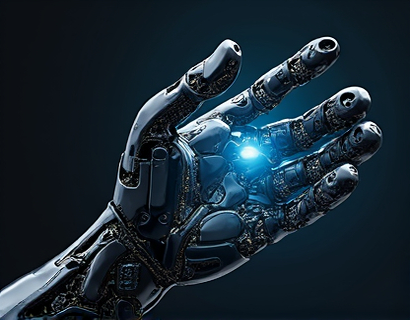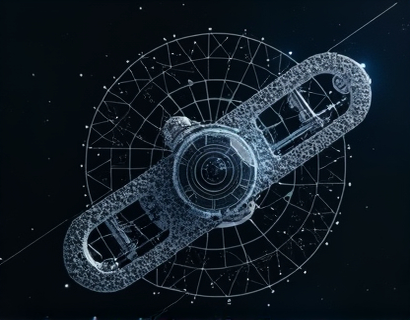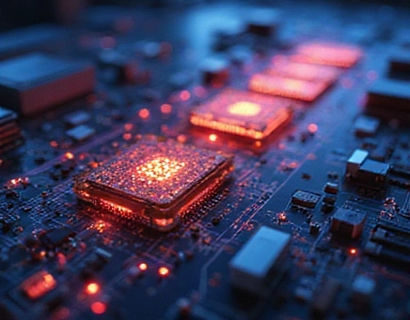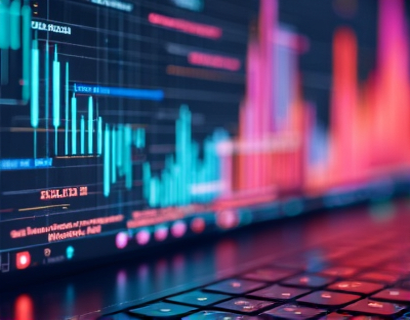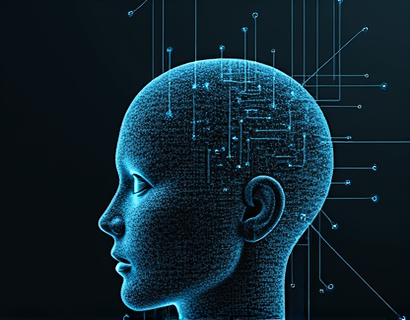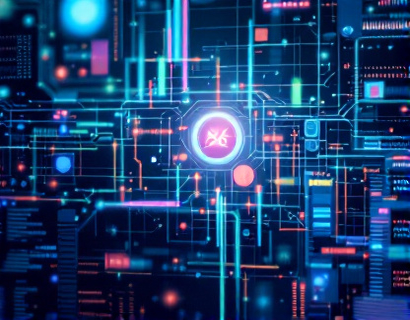Decentralized Organization Dynamics: Mastering the Advanced Software Stack for Universal Governance and Efficiency
In the rapidly evolving landscape of digital governance and organizational structures, decentralized systems have emerged as a transformative force. This article delves into the intricate dynamics of decentralized organizations, focusing on how advanced software can enhance governance, collaboration, transparency, and efficiency. For enthusiasts of decentralized systems, understanding the software stack that underpins these organizations is crucial for harnessing their full potential.
The concept of decentralized organizations, or Decentralized Autonomous Organizations (DAOs), represents a paradigm shift from traditional hierarchical structures. These organizations operate on blockchain technology, leveraging smart contracts to automate and enforce governance rules. The core idea is to distribute power and decision-making across a network of participants, eliminating the need for centralized control. This decentralization not only fosters greater transparency but also enhances resilience and adaptability.
Understanding the Software Stack
To build and manage universal decentralized organizations, a robust software stack is essential. This stack comprises various layers and tools that work together to create a seamless, efficient, and secure environment. The software stack typically includes blockchain platforms, smart contract frameworks, decentralized applications (dApps), and tools for governance and collaboration.
At the foundation lies the blockchain platform, which provides the decentralized ledger for recording transactions and smart contracts. Popular platforms like Ethereum, Binance Smart Chain, and Solana offer different features and capabilities. Ethereum, for instance, is renowned for its extensive smart contract ecosystem, while Binance Smart Chain and Solana focus on higher transaction throughput and lower fees.
Smart Contracts: The Backbone of Decentralized Governance
Smart contracts are self-executing contracts with the terms of the agreement directly written into code. They automate and enforce the rules of the organization, ensuring that all actions are transparent and verifiable. By eliminating intermediaries, smart contracts reduce the risk of fraud and increase efficiency.
Ethereum's Solidity is the most widely used language for writing smart contracts, but other languages like Vyper (also on Ethereum) and Rust (used in Solana) are gaining traction due to their enhanced security features. The choice of language depends on the specific requirements of the organization, such as scalability, security, and interoperability.
Decentralized Governance Tools
Effective governance in decentralized organizations requires tools that facilitate decision-making, voting, and stake management. Platforms like Aragon and MakerDAO provide comprehensive governance frameworks that enable the creation and management of DAOs. These tools allow members to propose and vote on proposals, manage funding, and execute decisions automatically through smart contracts.
Aragon, for example, offers a suite of tools for building and governing decentralized organizations. It includes modules for proposal and voting systems, token management, and community engagement. MakerDAO, on the other hand, focuses on decentralized finance (DeFi) governance, enabling users to propose and vote on changes to the protocol.
Collaboration and Communication Tools
Collaboration is a cornerstone of decentralized organizations, and robust communication tools are essential for maintaining cohesion and productivity. Platforms like Discord, Telegram, and Matrix provide decentralized communication channels that ensure transparency and accessibility. These platforms often integrate with decentralized identity solutions to enhance security and privacy.
For more structured collaboration, tools like Notion and Rocket.Chat offer decentralized workspaces where members can share documents, track tasks, and communicate in real-time. These tools are built on decentralized architectures, ensuring that data remains under the control of the users and is resistant to censorship.
Enhancing Transparency and Accountability
Transparency is a fundamental principle of decentralized organizations, and the software stack plays a crucial role in achieving this. Blockchain's inherent transparency ensures that all transactions and decisions are recorded and visible to all participants. This level of transparency builds trust and accountability within the organization.
Tools like Chainalysis and Etherscan provide real-time monitoring and analysis of blockchain activities. These tools help members track transactions, smart contract executions, and governance proposals, ensuring that everyone has access to the same information. This democratization of information is vital for maintaining a fair and transparent governance process.
Scalability and Interoperability
As decentralized organizations grow, scalability becomes a critical concern. The software stack must support high transaction volumes and ensure low latency to maintain efficiency. Layer 2 solutions like Optimism and Polygon, as well as cross-chain bridges, play a vital role in enhancing scalability by offloading transactions from the main blockchain and enabling interoperability between different blockchain networks.
Interoperability is equally important, as it allows different decentralized systems to communicate and work together seamlessly. Standards like Cosmos SDK and Polkadot's Interoperability Framework facilitate the creation of interconnected ecosystems, enabling the flow of assets and data across various platforms.
Security Considerations
Security is paramount in decentralized organizations, as the integrity of the system relies on the robustness of its software components. Implementing best practices such as code audits, formal verification, and secure deployment processes is essential to mitigate risks. Tools like Slither and Mythril provide automated security audits for smart contracts, helping to identify and fix vulnerabilities before they can be exploited.
Additionally, decentralized organizations should adopt a defense-in-depth strategy, incorporating multiple layers of security measures. This includes using secure key management solutions, implementing multi-signature wallets, and establishing clear incident response protocols.
Case Studies: Successful Decentralized Organizations
Examining real-world examples can provide valuable insights into the practical application of advanced software stacks in decentralized organizations. One notable example is the Decentralized Autonomous Community (DAC) built on the Binance Smart Chain, which leverages a combination of governance tools and communication platforms to manage a community-driven project.
Another example is the decentralized marketplace Decentralized Exchange (DEX) built on Solana, which uses smart contracts for automated trading and a decentralized governance system for protocol upgrades. These case studies demonstrate how the right software stack can enable efficient, transparent, and community-driven operations.
Future Trends and Innovations
The landscape of decentralized organizations is continually evolving, with new technologies and innovations emerging regularly. One area of focus is the integration of artificial intelligence (AI) and machine learning (ML) into decentralized systems. AI can enhance decision-making processes, optimize resource allocation, and improve user experiences.
Another trend is the development of user-friendly interfaces and tools that lower the barrier to entry for non-technical users. Platforms like Drizzle and Web3.js are making it easier for developers to build and interact with decentralized applications, fostering greater adoption and participation.
Furthermore, the rise of decentralized identity solutions, such as Self-Sovereign Identity (SSI), is set to revolutionize how users manage their digital identities in decentralized environments. These solutions provide users with greater control over their personal data and enhance privacy.
Conclusion
Mastering the advanced software stack is essential for building and managing successful decentralized organizations. By leveraging blockchain platforms, smart contracts, governance tools, and collaboration platforms, enthusiasts can create universal organizations that embody the principles of decentralization, transparency, and efficiency. As the technology continues to evolve, the potential for decentralized systems to transform various industries and aspects of society becomes increasingly evident.
For those eager to explore this exciting field, the journey begins with a deep understanding of the software stack and its components. By staying informed about the latest developments and best practices, enthusiasts can contribute to the growth and maturation of decentralized organizations, paving the way for a more equitable and resilient digital future.








